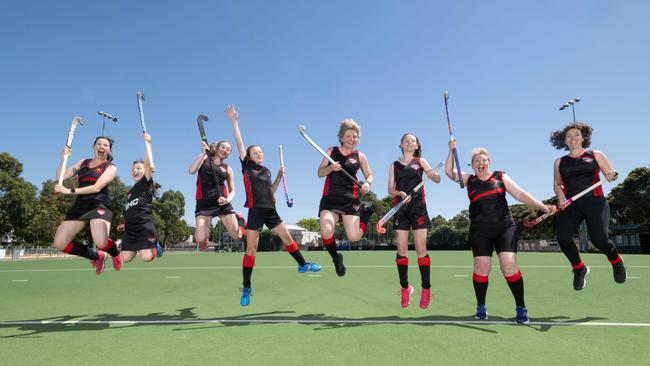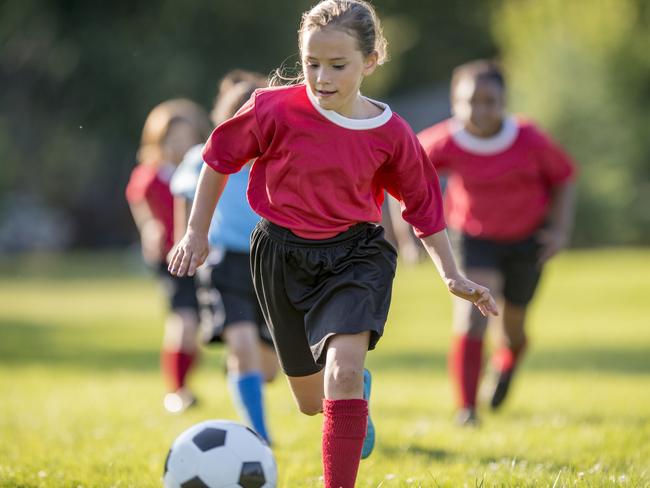Victoria University study says sports clubs should focus on fun not winning
Girls start playing sport for fun, but a few key factors are seeing many drop out in their teens. One expert has advice for community clubs wanting to build participation.

Victoria
Don't miss out on the headlines from Victoria. Followed categories will be added to My News.
When it comes to playing community sport, it seems girls just want to have fun.
New research from Victoria University that surveyed 5000 females across Australia found for most sport participation was not about winning, but about enjoying some social time with friends.
Study lead Rochelle Eime said girls were more motivated to participate in sport if it was with their friends and as part of a team.
A behavioural epidemiologist at Victoria University, Professor Eime says young girls are often segregated from their friends depending on their sporting ability and this can lead to them dropping out early because they still want that social interaction.
“While there are a number of reasons girls give up community sport, the common denominator is that they are no longer having fun,” Professor Eime says.
“It is interesting when you try to unpack what fun means; some describe it as enjoyment, others learning to improve and playing with their friends.”
Professor Eime said a lot of children go into sports, but when they become teenagers there are competing things going on in their lives.

“Sport also puts pressure on individuals when they get to 15 and they are required to train, turn up on game day, take part in pre-season sessions and this seems to be the tipping point,” she said.
“A lot of people want to keep playing, but say it is not about winning or losing – they want their community sport to be flexible and not necessarily commit to every week.
“We need to tone it back a bit. I am not saying no to elite development, we need a parallel system and it is not called social sport, I’d call it Sport for Me. Something more flexible and individual.”
Professor Eime said community sport also needs to be more affordable.
“I would argue you don’t need home and away shorts at $40 a pair,” she said.
“And you don’t need logo association socks, these are the little levers that can make sport more accessible, more affordable and more enjoyable.”
She said Covid’s devastating impact on community sport memberships now provided opportunities for a major overhaul of the ways clubs attracted and kept female members.
“The findings highlight what the retention issues are for many clubs, but also that most are easy to fix,” Professor Eime said.
“Clubs can focus too much on pennants and medals, yet the research shows players mainly want to have fun, especially at the crucial adolescent stage when we lose so many young women and girls,” she said.
The study sent surveys to past and present members of community gymnastics and football clubs but Professor Eime said the findings could be applied to any sports.
It found the main reason girls aged under 12 dropped out of community sport was the cost – a decision that would likely be made by parents, Professor Eime said. For women aged over 18, she said Covid-19 was a leading cause, because of restrictions and health concerns. Cost was also a factor.

The report recommends that sports have strategies that focus on the delivery of programs as a fun and enjoyable way to be physically active and not concentrate so much on competition, commitment and winning the game.
It also recommends clubs consider the importance of creating opportunities to connect socially when delivering sport programs and competitions and use friendship groups, families and other social groupings as platforms to increase the number of participants and club members and to retain them.
It also recommended clubs ensure training and competitions allow all players to improve their skills, not just elite members and to look at ways to assist with costs such as re-purposing equipment or uniforms, or offering discounts to volunteers.





